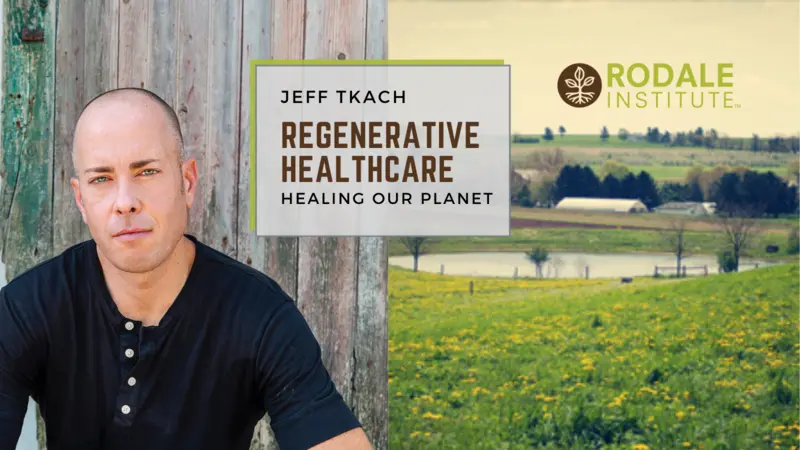

Planet and People Connection

Planet and People Connection
Rodale Institute: Jeff Tkach Talks Regenerative Healthcare Healing Our Planet
KnoWEwell sat down with Jeff Tkach, the Chief Impact Officer of organic farming pioneer Rodale Institute, to discuss regenerative healthcare—the critical connection between food and health.
For over 70 years, Rodale Institute—a pioneer of the organic food movement—has championed the concept of farming without herbicides and pesticides by funding and supporting scientific studies and education. Now entering his fifth year with Rodale, Chief Impact Officer Jeff Tkach is committed to upholding the legacy of the institute’s founder, J.I. Rodale, who believed that healthy soil equals healthy food equals healthy people. According to Tkach, farmers and healthcare professionals need to embrace a prevention-based approach to human and environmental health, and Rodale is here to bridge the gap between these two industries by unlocking the transformational power of regenerative healthcare.
KWW: How did your personal journey lead you to explore regenerative healthcare?
JT: In 2016 I experienced a tremendous health collapse in my own life. I went through six conventional medical doctors and $50,000 in medical bills. I had been a high-performing businessperson up until that point, and found myself on medical leave, bedridden, and unable to work. I sought out a doctor who practiced something called functional medicine, which focuses on finding the root of whatever caused the breakdown in health. After numerous tests, it was discovered that I had chronic Lyme disease. The doctor explained that there was nothing he could prescribe that was going to instantly make me better. Through my work with him, I had to look at my body as a whole system and came to realize that food is medicine. Ultimately, alternative modalities like acupuncture and IV [intravenous] therapy, as well as food healed me.
KWW: How would you define regenerative healthcare?
JT: It is a system in which farming and healthcare work together focused on a prevention-based approach to human and environmental health. Instead of using toxic chemicals to farm, regenerative healthcare aims to prevent disease through an organic, plant-based, whole-foods diet. Regenerative healthcare begins on farms that work in harmony with nature. At Rodale, we see ourselves as a human health organization, not an agricultural organization. We use agriculture as a tool to promote human health. Our goal is to build the first brick and mortar facility in the world, called the Regenerative Health Institute, that will connect medical doctors and farmers. The facility will be a 333-acre certified organic farm in Kutztown, Pennsylvania, that will provide innovative research on the links between farming and human health. We’re going to be doing scientific research that demonstrates the link between soil health and the health of people, and we're going to educate and train tomorrow's doctors to become more literate in agriculture and to understand how they can use food as medicine.
KWW: How can we harness the power of regenerative organic farming to foster good health?
JT: The current mode of farming is systemically broken, and farmers need to move in a healthier direction. The science is showing that elements in pesticides and herbicides are known carcinogens that are wreaking havoc on our immune systems. They are ubiquitous in our air and drinking water. Farmers are no longer able to control where those chemicals land. They’re leaching into our groundwater, killing the life in the soil and causing major soil erosion. Ultimately, they're causing imbalances in nature of mass proportion.
KWW: How can you convince people to adopt organic and consider food as medicine?
JT: We need to encourage people to get to know a farmer. There are incredible regenerative organic farmers in our own communities that oftentimes don't have access to mainstream markets. During the pandemic, we saw a major increase in sales directly from farms to consumers. When the supply chains in the grocery stores broke down, we turned to farmers. That's profound. As a result of the pandemic, 22 million new gardens were planted in the United States, according to the National Gardening Association. We need to keep that going. It’s very exciting to be a part of this movement as people around the world come to understand the importance of food as medicine. I truly believe that regenerative healthcare is the key to healing our planet.
For more information visit RodaleInstitute.com.


 By
By







